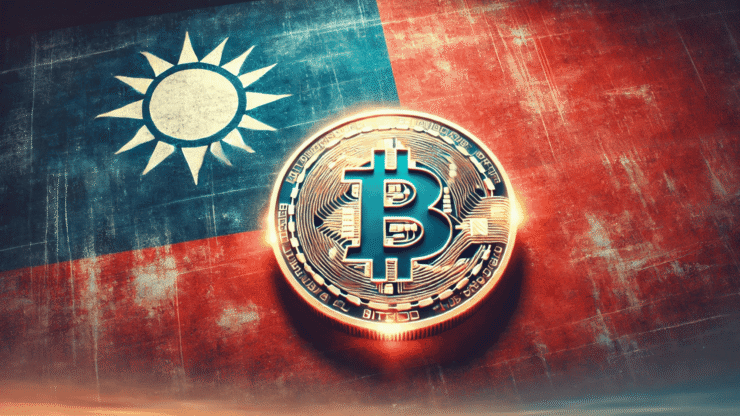Taiwan may be the next country to flirt with Bitcoin at the state level. Legislator Ko Ju-Chun has formally proposed that the Taiwanese government allocate a portion of its national reserves to Bitcoin, citing the cryptocurrency’s potential as a strategic hedge against global financial volatility.
Speaking at the National Conference on May 9, Ko emphasized that Bitcoin—like gold and foreign exchange reserves—could play a meaningful role in fortifying Taiwan’s economic stability. As the island nation grapples with rising inflation, currency fluctuations, and geopolitical headwinds, Ko argued that Bitcoin’s decentralized design and limited supply offer compelling advantages.
His remarks followed a recent meeting with Samson Mow, CEO of Bitcoin infrastructure firm Jan3, who has worked with countries like El Salvador on national-level BTC adoption. Ko’s alignment with Mow’s vision suggests that Taiwan may be closely observing how other nations experiment with Bitcoin as part of sovereign finance strategies.
While no formal motion has yet been introduced, Ko floated the idea of assigning up to 5% of Taiwan’s foreign reserves to Bitcoin. With over $577 billion in foreign reserves and 423 metric tons of gold, even a small BTC allocation would represent a meaningful policy shift—and could send a strong signal to regional economies and global investors.
Ko Points to Currency Volatility, Geopolitical Risk in Bitcoin Push
Ko Ju-Chun underscored Taiwan’s economic vulnerabilities as he made the case for integrating Bitcoin into the nation’s reserves. Speaking at the National Conference, he emphasized Taiwan’s exposure to global market volatility and rising geopolitical tensions—factors that have led to sharp swings in the New Taiwan dollar.
“We currently have a gold reserve of 423 metric tons, and our foreign exchange reserves amount to $577 billion, including investments in U.S. Treasury bonds,” Ko noted.
But amid escalating uncertainty in the Asia-Pacific region and the growing risk of currency instability, Ko warned that Taiwan may not be able to fully safeguard the value and liquidity of its traditional reserves in times of crisis. Against this backdrop, he positioned Bitcoin as a modern complement—offering resilience through decentralized infrastructure, provable scarcity, and global liquidity.
For Ko, the proposal isn’t about replacing traditional assets, but about future-proofing Taiwan’s financial strategy by diversifying into emerging stores of value.
Ko Calls for Balanced Bitcoin Approach
While advocating for Bitcoin’s inclusion in Taiwan’s sovereign reserves, Ko Ju-Chun emphasized that the proposal is not a wholesale pivot toward crypto. Rather, it’s a call for balanced diversification.
Addressing the growing interest in Bitcoin among governments worldwide, Ko cautioned against viewing the asset as a “silver bullet” for economic instability. He proposed a modest allocation—up to 5%—of Taiwan’s reserve strategy to Bitcoin, complementing existing holdings in gold, fiat currencies, and bonds.
The aim, Ko explained, is to use Bitcoin as a strategic hedge and additional risk-buffer, especially during periods of global financial instability.
“When exchange rate risk and regional uncertainty increase, it is time to introduce new tools to construct a more flexible financial strategy framework,” he said.
His remarks come amid Taiwan’s broader exploration of digital finance. The Financial Supervisory Commission has begun testing crypto custody services with institutional partners—a marked departure from mainland China’s ongoing crackdown on crypto since its sweeping bans in 2021.
Quick Facts
- Taiwanese lawmaker Ko Ju-Chun has proposed allocating up to 5% of national reserves to Bitcoin.
- Taiwan holds over $577 billion in foreign reserves and 423 metric tons of gold.
- The proposal follows Ko’s meeting with Jan3 CEO Samson Mow, a key advocate for national Bitcoin adoption.
- Taiwan is expanding its digital finance capabilities, including institutional crypto custody testing.





